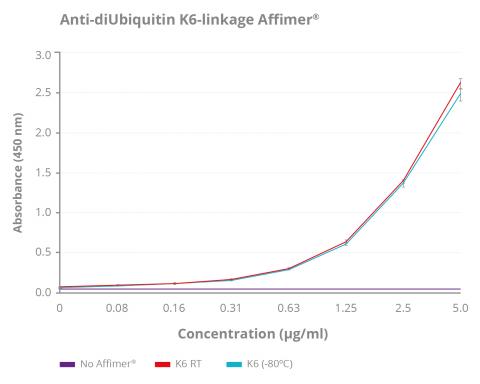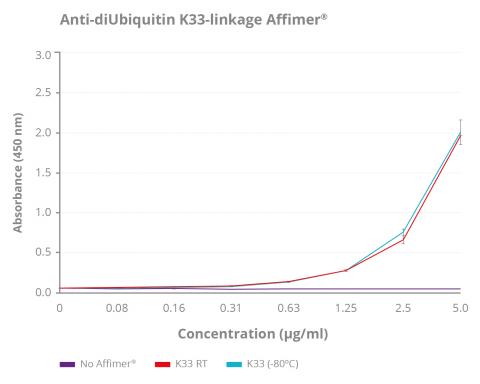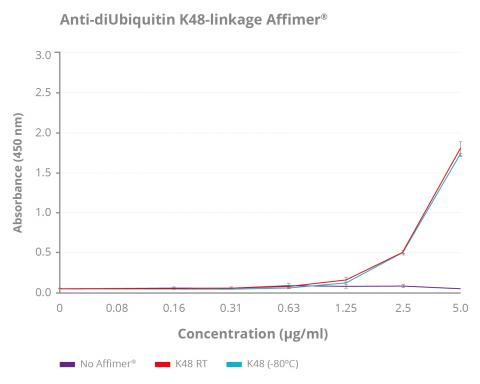We are very excited about Affimer technology, but rather than just tell you about their super-stability, we thought we’d show you.
We took three different Affimer reagents from our catalogue and simply left them at room temperature for two months to test their stability.
As our key benefits (link is external) explain, Affimer proteins are stable at the extremes of pH from 2-12, at temperatures above 80°C and fully functional when immobilised on to solid supports such as glass, gold or plastic.
After giving the Affimer samples two months of sitting about and watching the lab go by, we went back to our samples and tested them against samples we’d kept in deep freeze at -80°C.
As you can see for yourself from the ELISA results, the Affimer samples that had been sat for two months at room temperature show absolutely no difference in activity compared to those from the freezer.



In comparison, antibodies are typically stored at 4°C or -20°C. Substantial periods of time at higher temperatures are known to degrade the structure of many antibodies and result in loss of both affinity and specificity. This situation is not ideal, meaning antibodies generally have to be kept on ice until they’re needed with occasional outbreaks of panic if the antibodies are accidentally left out of the fridge or in the event of a power failure.
A stable protein reagent can be key to an experiment, offering reliable activity and specificity with easy storage and a longer shelf life. Increased protein stability is also important for biosensor applications and diagnostics where an increase in stability can offer increased shelf-life. Although some have engineered antibodies for increased stability, this has the obvious drawbacks of being expensive, time-consuming and failing to provide a general solution to a common problem.
Meanwhile the same Affimer samples are still at room temperature in the lab, whilst we’ve put the controls back in the fridge to test again in a few weeks.